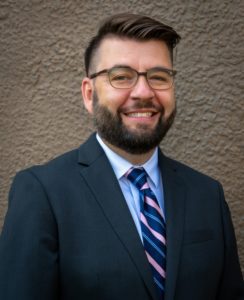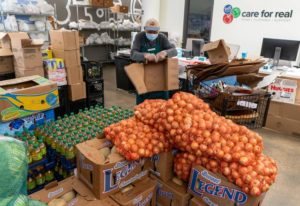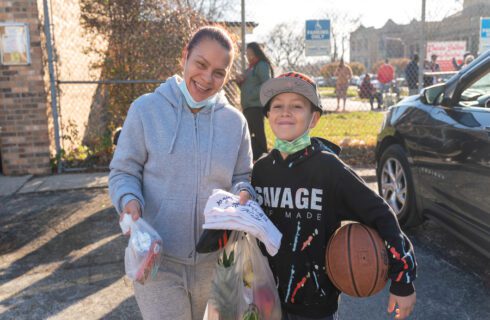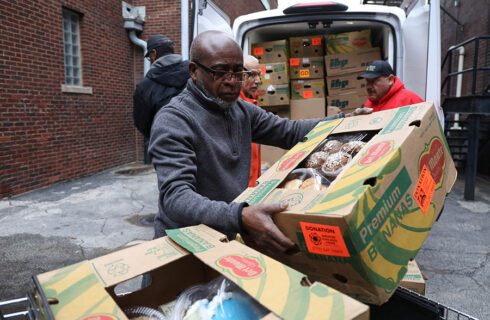Imagine taking the helm at a large food pantry during a global pandemic that’s caused an unprecedented rise in food insecurity.
Such is the case for Gregory Gross, new executive director for Care for Real, a longtime partner of the Food Depository in the Edgewater community on Chicago’s North Side. Gross started his new post in September after working for more than five years at the Night Ministry, another partner serving people experiencing poverty and homelessness. As a gay man, and as an ordained deacon in the United Methodist Church, Gross comes to this work with a lifelong commitment to serving others, particularly those who are on the “fringes or on the margins of our society.” “I’ve always felt called to serve other people,” said Gross, 42. “Everyone should be able to have a place to sleep. To have food in their cupboards and a full belly. What can I do to help make that possible?”
Gregory Gross of Care for Real
Meeting the need with compassion
To respond to rising need, Care for Real launched a pop-up pantry at the United Church of Rogers Park. It also expanded into a second storefront connected to its primary Edgewater location, a move that’s already reduced the amount of time that people are waiting in line for food.“There are a lot of folks who are experiencing food insecurity for the first time, who have never had to turn to a food pantry before, who didn’t even know what that would look like,” Gross said. “So we’re trying to meet that need with dignity and compassion as best we can.”

A volunteer breaks down boxes at Care for Real, which has seen a rise in need during the pandemic.
Uniting faith and service
Gross grew up in the small town of Coldwater, Ohio, which has a population about 4,500 people. His father worked at the local Honda factory; his mother worked at a dental office. Faith was important to his family. “We always pulled together to help others,” he said. ”I think that’s the core tenet of all the religions – ‘Do unto others as you would want them to do unto you.’” He moved to Chicago for graduate school at the Garrett-Evangelical Theological Seminary, where he earned his Master in Divinity. He went on to receive another graduate degree in social service administration at the University of Chicago. He’s also worked at the Center on Halsted and the AIDS Legal Council of Chicago. Gross had planned to move back to Ohio. But he fell in love with the diversity and opportunity in Chicago and has remained here ever since. And now, he’s guiding one of the leading social service organizations on Chicago’s North Side through an ongoing crisis. It’s no small task, but he’s up to the challenge. “At the end of the day, at the end of the week especially, I’m extremely exhausted, more than I’ve ever been,” Gross said. “But it’s also a good exhaustion in that I can take heart that we are doing good in the community and that we are serving people with dignity and compassion and making sure folks have food on the table tonight. It’s challenging but it’s extremely rewarding.”Share This Post



